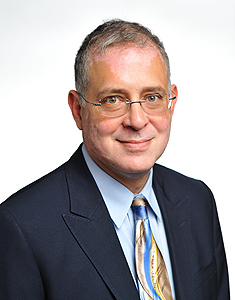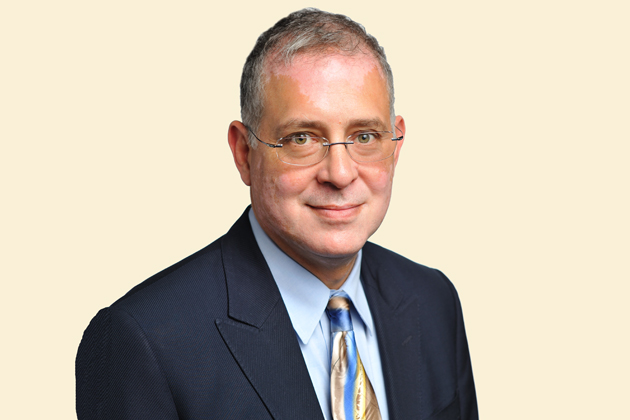
Jeremy Teitelbaum, dean of the College of Liberal Arts and Sciences, is a guest contributor to UConn Today. His posts appear on Mondays, except when a public holiday falls on a Monday. For his previous posts, click here.
NPR’s Elizabeth Blair reported Friday night on plans – plans that did not meet with universal agreement – to fix the poorly paraphrased quotation planned for the Martin Luther King memorial in Washington, D.C. The stone monument bears the words “I was a drum major for justice, peace, and righteousness” instead of the longer quotation selected by the Council of Historians:
Say that I was a drum major for justice. Say that I was a drum major for peace.
I was a drum major for righteousness. And all of the other shallow things will
not matter.
Rachel Manteuffel, writing in August in the Washington Post about the paraphrase, said convincingly that the version etched in stone makes King sound like “an arrogant jerk.”
It takes chutzpah to tinker with the words of one of this country’s greatest orators, especially on their national monument. Since the value of a quotation lies not simply in the expression of a single idea, but as an evocation of the longer work in which the quote is embedded, I followed up on Blair’s story to get a better sense of what King was really talking about by looking at his full text.
The topic of King’s sermon is the human desire for primacy, the desire to lead – what he calls the “drum major instinct.” As he says early in the sermon, “We all want to be important, to surpass others, to achieve distinction, to lead the parade …” and he explains how this enables advertisers to sell us cars and houses we cannot afford and leads us to form clubs and associations so that we can hold offices with titles like “Grand Patron.”
Or, King might have said, it leads some of us to seek positions as Deans. Or to write blogs. Because when I examine my own motives, there’s no question that I have a pretty hefty dose of the drum major instinct.
Unharnessed, King says, the drum major instinct leads to the most debased human behaviors.
Gossip and innuendo:
… when one fails to harness this instinct, he ends up trying to push others down in order to push himself up. And whenever you do that, you engage in some of the most vicious activities. You will spread evil, vicious, lying gossip on people, because you are trying to pull them down in order to push yourself up.
racism:
Do you know that a lot of the race problem grows out of the drum major instinct? A need that some people have to feel superior. A need that some people have to feel that they are first, and to feel that their white skin ordained them to be first.
and war:
And I would submit to you this morning that what is wrong in the world today is that the nations of the world are engaged in a bitter, colossal contest for supremacy. And if something doesn’t happen to stop this trend, I’m sorely afraid that we won’t be here to talk about Jesus Christ and about God and about brotherhood too many more years .. .because somebody’s going to make the mistake through our senseless blunderings of dropping a nuclear bomb somewhere.
Unfortunately, we see the dark side of the drum major instinct all the time in academia. King calls on all of us here at UConn to reflect on instances where we pushed others down so that we could shine, or spoke ill of our colleagues to our own advantage, or exploited people’s skills and talents for our own benefit.
But, says King, the instinct to lead can be harnessed to a good purpose – through service. Referring to Jesus’s teachings (it was a sermon, after all), King says:
… everybody can be great, because everybody can serve. You don’t have to have a college degree to serve. You don’t have to make your subject and your verb agree to serve. You don’t have to know about Plato and Aristotle to serve. You don’t have to know Einstein’s theory of relativity to serve. You don’t have to know the second theory of thermodynamics in physics to serve. You only need a heart full of grace, a soul generated by love.
With the full sermon in mind, the impact of the quotation planned for King’s memorial becomes clear. That featured quotation appears as King works towards his conclusion. He says – and now I will try to paraphrase – “I hope that, when I die, you will keep my eulogy short. Say nothing of my Nobel Prize, nothing of my university degrees, but I hope you will say that I turned the drum major instinct that we all share to the causes of peace, justice, and righteousness.”
Seen as an evocation of the full sermon, I understand now why this quotation was chosen for King’s memorial. What most strikes me about the quotation is that, in context, King does not set himself apart from the rest of us who wrestle with our own drum major instinct; rather, he joins us. The last sentence of the sermon is perhaps the most beautiful of all: “I just want to be there [at Jesus’s side] in love and in justice and in truth and in commitment to others, so that we can make of this old world a new world.”



